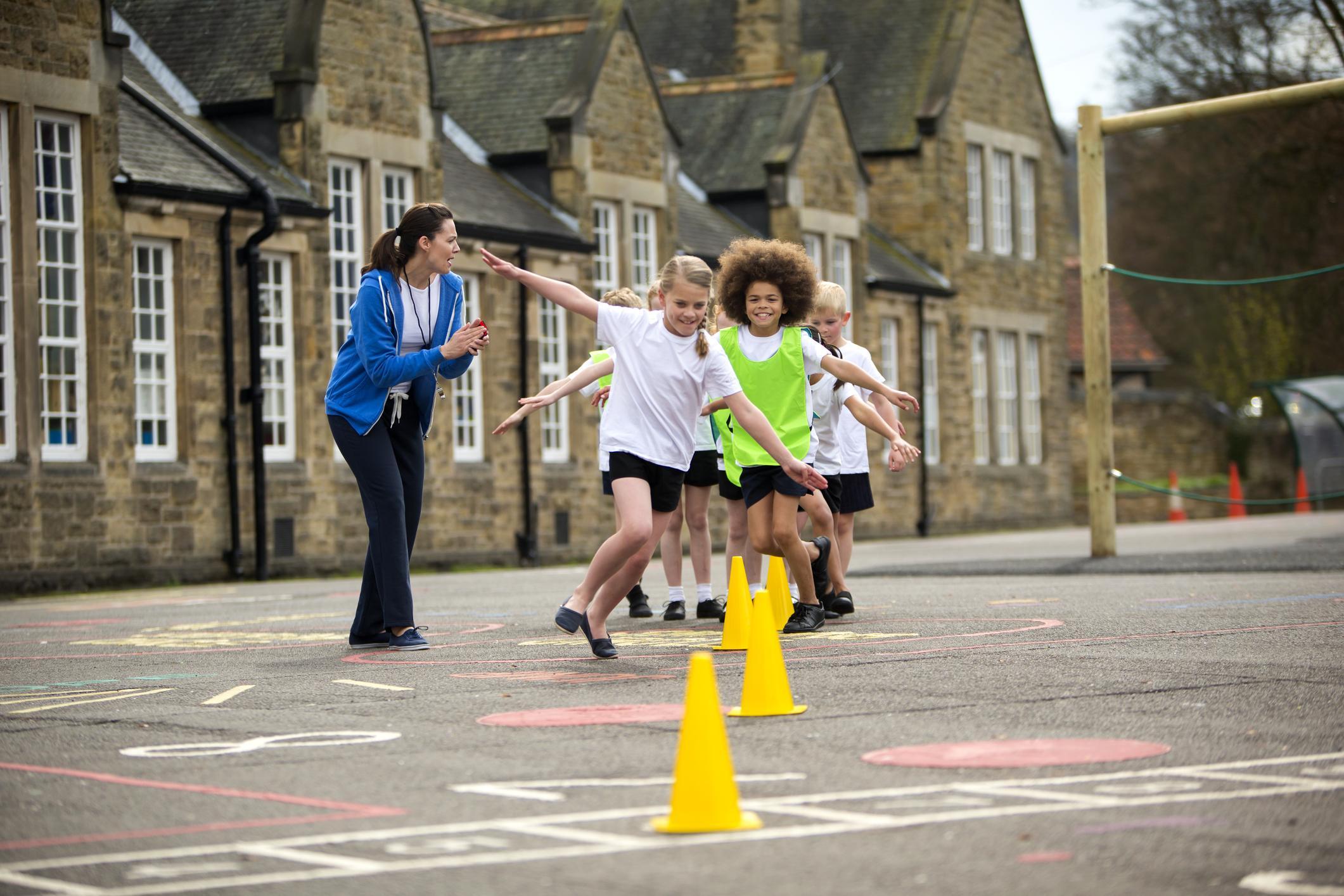Children should do exercise in maths and English lessons to boost grades, school leaders told
'Sitting down in class limits academic performance and negatively impacts on children's health'

Children should do exercise in maths and English lessons to help them learn better, headteachers are to be told.
Taking part in physical activity in class can help young people to retain facts and boost their academic results, according to Bryn Llewellyn, a former school leader from Yorkshire.
School leaders will debate a motion calling for “physically active learning” to be made an integral part of teaching at the National Association of Head Teachers (NAHT) conference in Liverpool.
Mr Llewellyn, who will lead the discussion this weekend, currently runs a programme which sees pupils play tag rugby-style games to help them to understand different areas of maths and English.
For example, students compete in teams to collect tags, and then work together to solve problems – such as times tables – using the tags they have collected.
A study into the scheme, conducted with Leeds Beckett University, found that pupils who took part in active lessons gained seven per cent more marks in maths than pupils in sitting-down lessons.
Mr Llewellyn said: “Traditional learning approaches limit educational creativity and academic performance, while also negatively impacting on physical activity and health. Physically active learning combines movement and learning.”
His comments come amid concerns about obesity levels among children. A recent report found four in five obese school children are likely to be dangerously overweight for life.
Mr Llewellyn added: “As teachers and leaders, we need to look at ways we can increase and embed creative opportunities for teaching and learning. Research shows that children who are physically fit are better at absorbing and retaining new information.”
He said: “Physically active learning approaches not only provide an enjoyable alternative to 'traditional' learning, but promote physical activity – crucial when we all face the increasing problem of sedentary lifestyles.”
He added: “There are amazing things going on in our schools, but far too often better practice, either consciously or subconsciously, is pushed aside due to the test-driven culture we operate under."
With additional reporting by PA
Subscribe to Independent Premium to bookmark this article
Want to bookmark your favourite articles and stories to read or reference later? Start your Independent Premium subscription today.

Join our commenting forum
Join thought-provoking conversations, follow other Independent readers and see their replies